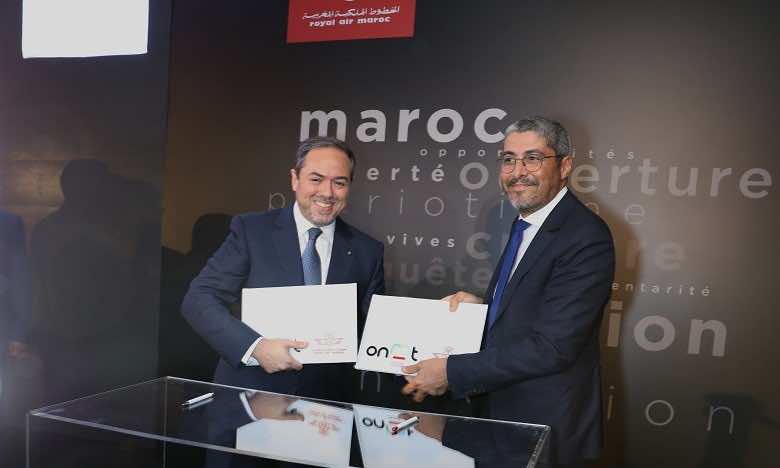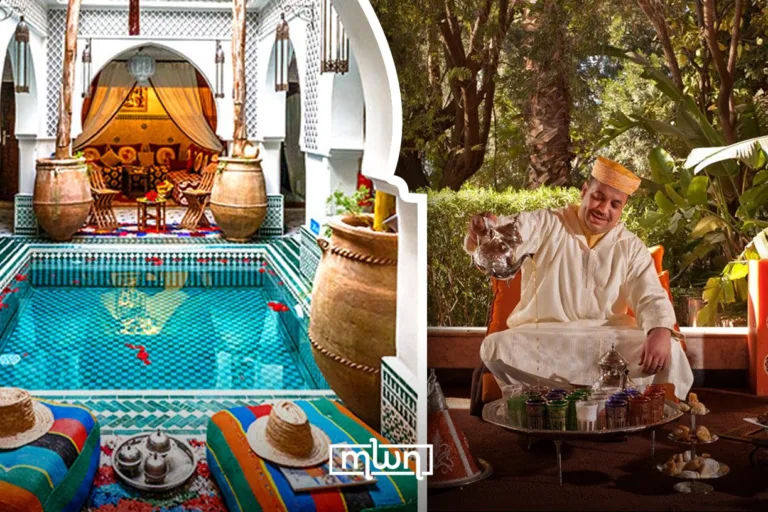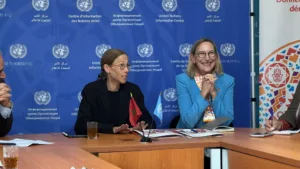Rabat – Morocco’s national carrier Royal Air Maroc and the Moroccan Tourism Office (ONMT) will collaborate to boost Morocco’s tourism sector.
Under the cooperation plan, Royal Air Maroc and ONMT have signed a three-year agreement to promote Morocco as a key destination in strategic markets.
The agreement will allow the two parties to strengthen Morocco’s connectivity by establishing new air routes to the country. The plan, with its schedule to be announced at a later date, seeks to meet market needs by improving access to both key destinations and meet the demands from Moroccans around the world.
“This historic partnership, which comes after a period of the pandemic, will allow the national tourism industry to quickly restart the sector,” Minister of Tourism Fatim Zahra Ammor said on Thursday.
Royal Air Maroc CEO Hamid Addou commented on the new agreement between the two bodies, emphasizing that the national airline decided to take a new step towards closer cooperation with the ONMT.
The agreement seeks to not only promote the Morocco brand but also seize the commercial opportunities offered by the recovery in the tourism sector, he argued.
“This alliance and the resulting program in the short, medium, and long terms, are a signal of more optimism and ambition for our national tourism,” said Addou.
ONMT Director-General Adel El Fakir commended the agreement, emphasizing that such cooperation will “undoubtedly have a significant” impact on the tourism industry in Morocco.
“[Royal Air Maroc is our national company, so it was important for the [ONMT] to be at its side to stimulate tourist demand both nationally and internationally,” Addou said.
Under the agreement, Royal Air Maroc’s presence will be strengthened at the four major world tourist fairs.
Boosting local tourism
Morocco is also seeking to boost local tourism. Earlier this week, Morocco’s Ministry of Tourism announced its ambition to boost domestic tourism, arguing that it “forms an immunity to protect the sector from a potential crisis.”
Like many countries around the world, Morocco’s tourism sector was severely impacted by the COVID-19 crisis.
Amid the crisis, the government emphasized the importance of boosting domestic tourism as a way to tackle hardships within the sector.
“Domestic tourism is the main aspect that guarantees the immunity of the tourism sector in the Kingdom and its ability to resist crises,” Minister of Tourism Fatim-Zahra Ammor said in a recent session at the House of Councilors this week.
Domestic tourism represents about 30% of overnight stays in tourist accommodations classified at the national level, the minister said.
Over the past year Morocco has seen the share of domestic tourists increase vis-a-vis foreign tourists.
“The importance of domestic tourism, which plays a major role in economic, social, and field development, and contributes to employing the workforce and reviving other related economic sectors, emerged during the health crisis, as it represented 50 % of overnight stays in 2020, and 69% in 2021,” she said.
Data revealed that 51 % of Moroccan tourists prefer beach tourism, while 58 % of them prefer to travel for summer vacations.
Around 60% prefer family trips, meanwhile, 72% pay attention to the costs of tourism services.
“[The tourism] ministry is working to lay solid foundations for sustainable development of domestic tourism in the Kingdom, by creating tourist resorts that are suitable for the purchasing capabilities of Moroccan tourists, taking into account the product and prices,” Ammor said.
In October 2021, the minister called for the creation of affordable tourism resorts for Moroccan tourists.
She also introduced a project on which her ministry and the Ministry of Economy are collaborating to create holiday vouchers that will reduce travel costs, as part of the country’s approach to promoting domestic tourism.
The government has recently expressed its satisfaction with the recovery of the sector following the reopening of borders in February.
The government expects further improvement with the easing of COVID-19 restrictions to access the North African country.
Recent data showed that the sector’s revenues reached nearly $1 billion at the end of March 2022.
The figures represent an 80% increase compared to the same period last year, Ammor said in May.















